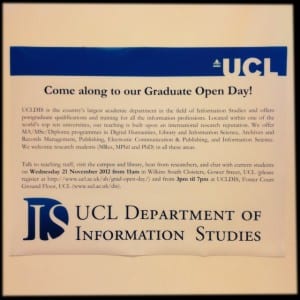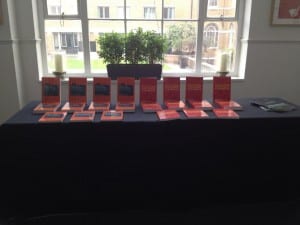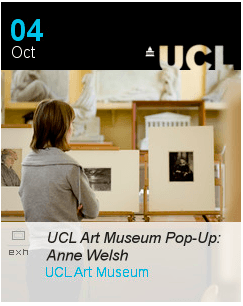Graduate Open Day
By Anne Welsh, on 29 October 2012

UCL Graduate Students Open Day Wednesday 21 November 2012
UCL Department of Information Studies (DIS) is a leading centre for research and professional education inlibrarianship, information science, archives and records management, publishing and the digital humanities.
Come along to our Faculty and Departmental Graduate Students Open Day: talk to teaching staff, visit the campus and library, hear from researchers and chat with current students. It takes place on Wednesday 21November 2012. From 11am in Wilkins South Cloisters, Gower Street, UCL (please register athttp://www.ucl.ac.uk/ah/grad-open-day/ )
And from 3pm – 7pm in DIS, Foster Court, Ground Floor, UCL (for details see http://www.ucl.ac.uk/dis ).
Students benefit from studying in the UK’s largest information school, at one of the world’s top 10 universities. We offer MA/MSc/Diploma programmes in Digital Humanities; Library and Information Studies; Archives and Records Management; Publishing; Electronic Communication & Publishing and Information Science.
Our teaching is built upon an international research reputation: the department hosts three research centres and two research groups: Centre for Publishing, Centre for Digital Humanities (CDH), Centre for Archives and Records Research (ICARUS), Applied Logic Group and Knowledge Organization Group. We welcome research students (MRes, MPhil and PhD) in all these areas.
 Close
Close




 This Autumn’s exhibition at the
This Autumn’s exhibition at the